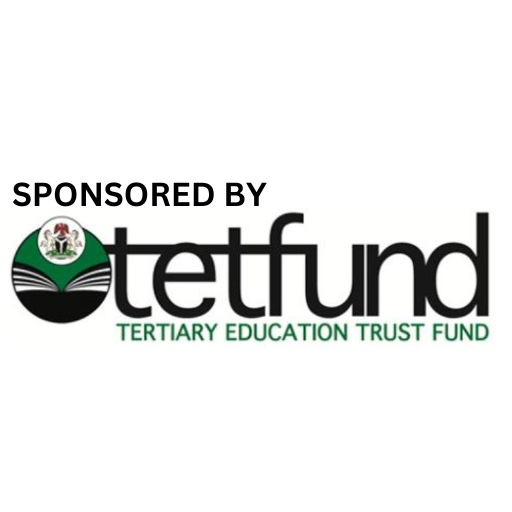Teachers’ Inclusion of Students with Sensory Disability in Nigerian Classrooms: A Review
DOI:
https://doi.org/10.63561/fnas-jmse.v6i3.903Abstract
This study reviews the inclusion of students with sensory disability in Nigerian classrooms. It examines the challenges, strategies, and practical realities faced by educators in implementing inclusive education for learners with visual and hearing impairments. Despite supportive policies like Nigeria's National Policy on Education (2014) and international frameworks, the integration of students with sensory disability into regular classrooms remains limited due to factors such as inadequate infrastructure, insufficient teacher training, societal attitudes, and lack of appropriate teaching resources. The review highlights the importance of inclusive curriculum design, multi-sensory instructional approaches, differentiated assessments, and assistive technologies in enhancing the learning experiences of students with sensory impairments. The paper concludes by recommending stronger policy enforcement, targeted teacher training, provision of learning resources, and increased societal awareness. By focusing on teachers’ roles and challenges, this review contributes to the ongoing discourse on inclusive education in Nigeria and provides practical insights for policy and practice.
References
Abdullah, N., Low, K.E.Y., & Feng, Q. (2021). Sensory Disability. In: Gu, D., Dupre, M.E. (eds) Encyclopedia of Gerontology and Population Aging. Springer, Cham. pp 4468–4473. DOI: https://doi.org/10.1007/978-3-030-22009-9_480
Addy, W. A., Ajayi-Nifise, A. O., Bello, B. G., Tula, S. T., Odeyemi, O., & Falaiye, T. (2024). AI in credit scoring: A comprehensive review of models and predictive analytics. Global Journal of Engineering and Technology Advances, 18(02), 118-129. DOI: https://doi.org/10.30574/gjeta.2024.18.2.0029
Akinrinola, O., Addy, W. A., Ajayi-Nifise, A. O., Odeyemi, O., & Falaiye, T. (2024). Application of machine learning in tax prediction: a review with practical approaches. Global Journal of Engineering and Technology Advances, 18(02), 102-117. DOI: https://doi.org/10.30574/gjeta.2024.18.2.0028
Besser Eye Care Team (2023). International Day of Persons with Disabilities: Visual Impairment. https://www.eduardobessermd.com/blog/visual-impairment-characteristics.
Castilla-Earls, A., Bedore, L., Rojas, R., Fabiano-Smith, L., Pruitt-Lord, S., Restrepo, M.A., & Peña, E. (2020). Beyond scores: Using converging evidence to determine speech and language services eligibility for dual language learners. American Journal of Speech-Language Pathology, 29(3), 1116-1132. DOI: https://doi.org/10.1044/2020_AJSLP-19-00179
Ekpete, O.H. (2024). Assistive listening devices for individuals with hearing impairment. FNAS Journal of Mathematics and Science Education, 5(2), 78-81. Ekpete, O.H & Diodemise, P.O (2023). Use of ICT tools in Assessing Special Needs Education. Journal of Education and Society, 13(2), 107-118. Enyiazu, F.A. (2022) The Problems of Educational Policy Implementation and Its Influence on the Welfare of Teacher Labor Market in Nigeria. Open Access Library Journal, 9(8), 1-22.
Federal Republic of Nigeria (FRN). (2014). National Policy on Education (6th Ed.). Lagos: NERDC Press.
Hafeez, M. (2021). Project-based versus traditional lecture teaching methods. Social Science Learning Education Journal, 6(7), 513-524.
Jummai, J. (2022). Challenges to access and support to learning environment in inclusive higher education in nigeria. Africa Journal of Inclusive Education, 5(1), 1-9.
Mhlongo, N. Z., Daraojimba, D. O., Olubusola, O., Ajayi-Nifise, A. O., & Falaiye, T. (2024). Reviewing the impact of digital platforms on entrepreneurship in Africa. International Journal of Science and Research Archive, 11(1), 1364-1375. Nephat, K & Martin, B. (2021). Teaching Strategies for Learners with Visual Impairment: A case of Mporokoso and Munali Secondary Schools. Zambia Interdisciplinary Journal of Education, 2(1), 1-12. DOI: https://doi.org/10.30574/ijsra.2024.11.1.0228
Oladipo, S. A. (2020). Inclusive education and the role of teachers in Nigeria. African Journal of Educational Research, 24(1), 35-46.
Olateju, T.A., Chima, A.E., Oyebola, O.A., & Nneamaka, C.O (2024). Inclusive curriculum design: Meeting the diverse needs of students for social improvement. International Journal of Applied Research in Social Sciences, 6(5), 770-784. DOI: https://doi.org/10.51594/ijarss.v6i5.1100
Pugach, M.C., Blanton, L.P., Mickelson, A.M., & Boveda, M. (2020). Curriculum theory: The missing perspective in teacher education for inclusion. Teacher Education and Special Education, 43(1), 85-103. DOI: https://doi.org/10.1177/0888406419883665
Ubani, N. S. (2023). The Home and School Environment as Correlate of Academic Achievement in English Language Amongst Students with Hearing Impairment in Obio-Akpor Local Government Area of Rivers State. International Journal of Education Humanities and Social Science, 6(5), 307-321 DOI: https://doi.org/10.54922/IJEHSS.2023.0598
Uko, Francesca. (2018). Factors associated with negative attitudes of teachers towards inclusive education of children with hearing impairment in Uyo, Nigeria. e-Pedagogium, 18(1), 36-51. UNESCO. (2020). Global education monitoring report: Inclusion and education: all means all. United Nations Educational, Scientific and Cultural Organization, France. DOI: https://doi.org/10.5507/epd.2018.018
World Health Organization (WHO). (2019). World report on vision. Geneva: WHO. www.who.int/publications-detail/world-report-on-vision.







